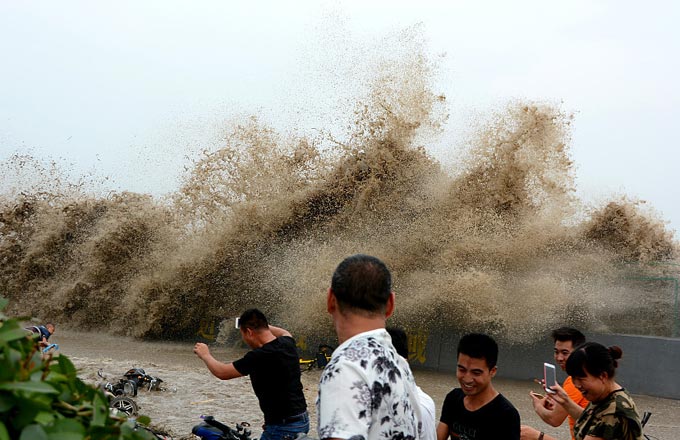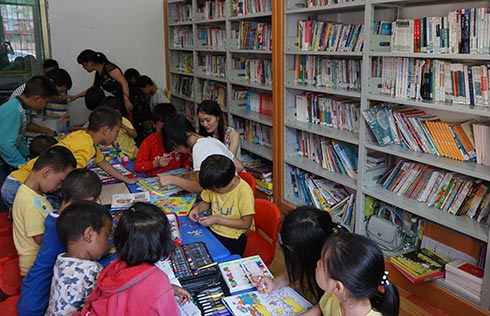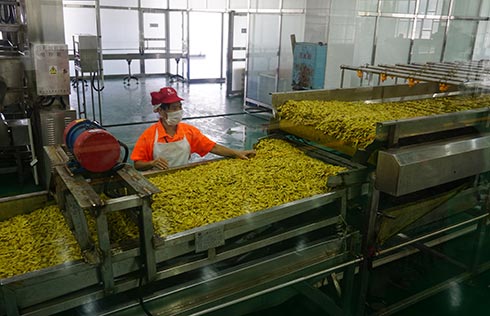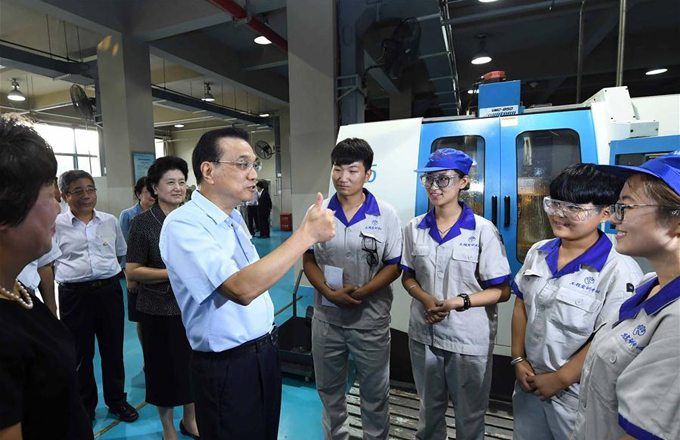Corruption, graft unveiled on TV
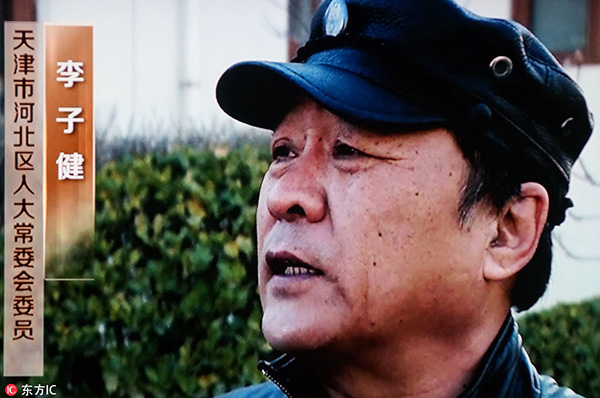 |
|
A screenshot shows the documentary of Sharp Sword of Inspection.[Photo/IC] |
Documentary over 5 days details cases against many key figures
A five-episode political documentary focusing on an effective anti-graft measure taken by the Communist Party of China began airing on Thursday, with many details of corrupt officials revealed for the first time.
The documentary, named Sharp Sword of Inspection, highlighted President Xi Jinping's strategy of using inspections as tools to boost clean governance amid the country's unprecedented campaign of fighting corruption.
It was jointly filmed by the CPC Central Commission for Discipline Inspection, the country's top anti-corruption watchdog, and China Central Television. It is being aired by CCTV with one episode each day.
According to the documentary, Yu Haiyan, former vice-governor of Gansu province, cut up all his photos taken with bosses who bribed him and flushed the pieces down the toilet to destroy evidence for graft charges. It said he also dipped his cellphone in vinegar and then threw it into the Yellow River to erase his phone records with the bosses.
Nearly 20 corrupt senior officials, including Wu Changshun, former police chief of Tianjin, and Wang Min, former Party chief of Liaoning province, were interviewed in the TV series. They expressed their regrets and confessions over their misdeeds. All of the corrupt officials who appeared in the documentary were investigated after they were inspected.
"I was afraid of the inspection team, and I drained my brains to learn the activities of the inspection team," Wang said in the documentary. He was sentenced to life imprisonment last month for receiving 146 million yuan ($22.5 million) in bribes.
Inspection, or xunshi, proves to be an effective tool for fighting corruption. Among the corruption cases probed by the top anti-graft watchdog, about 60 percent of the indicators of corruption were collected by the inspection teams.
The discipline inspection commission has launched 12 rounds of inspections at 277 Party and government departments, State-owned enterprises, institutes and universities since the 18th CPC National Congress in 2012.
On Aug 30, 17 organizations inspected in the 12th round, including the government of the Inner Mongolia autonomous region, Peking University and the Cyberspace Administration of China, publicized their measures for correcting problems found by the inspection team.
The inspection team found that the promotion of some officials at Peking University had violated rules. The university said in its rectification report that it had removed the posts of those officials as a measure to implement the inspection report.
Xi has highlighted the importance of inspections numerous times in the five years since he initiated the anti-graft campaign.
In May, Xi presided over a meeting of the Political Bureau of the CPC Central Committee, during which senior officials were asked to set themselves as examples by exercising self-restraint in the use of their power, accepting supervision and acting in line with rules.
The inspection work should focus on sticking to the Party's leadership, strengthening the Party's buildup and comprehensively enhancing Party discipline, according to a statement released after the meeting.
Yang Xiaodu, minister of supervision and deputy head of the discipline inspection commission, said last month that 256,000 graft cases were filed for probe from January to June, compared with 193,000 during the same period a year earlier.





